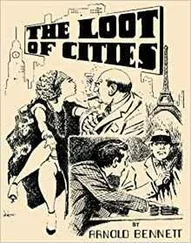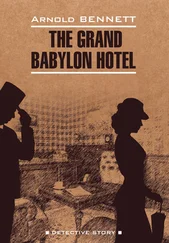"I grasp it perfectly, my dear journalist," Cecil replied. "And something will not improbably be missing. But take the advice of a burglar and a mystery, and go to bed, it is half past three."
And Eve went. And Cecil bowed her out and then retired to his own rooms. And the Count's apartment was left to the moonlight.
V.
"Planchette is a very safe prophet," said Cecil to Kitty Sartorius the next morning, "provided it has firm guidance."
They were at breakfast.
"What do you mean?"
"I mean that Planchette prophesied last night that I should restore to you your bracelet. I do."
He took the lovely gewgaw from his pocket and handed it to Kitty.
"Ho-ow did you find it, you dear thing?" Kitty stammered, trembling under the shock of joy.
"I fished it up out — out of the mire by a contrivance of my own."
"But when?"
"Oh! Very early. At three o'clock a.m. You see, I was determined to be first."
"In the dark, then?"
"I had a light. Don't you think I'm rather clever?"
Kitty's scene of ecstatic gratitude does not come into the story. Suffice it to say that not until the moment of its restoration did she realise how precious the bracelet was to her.
It was ten o'clock before Eve descended. She had breakfasted in her room, and Kitty had already exhibited to her the prodigal bracelet.
"I particularly want you to go up the Belfry with me, Miss Fincastle," Cecil greeted her; and his tone was so serious and so urgent that she consented. They left Kitty playing waltzes on the piano in the drawing-room.
"And now, O man of mystery?" Eve questioned, when they had toiled to the summit, and saw the city and its dwarfs beneath them.
"We are in no danger of being disturbed here," Cecil began; "but I will make my explanation — the explanation which I certainly owe you — as brief as possible. Your Comte d'Avrec is an adventurer (please don't be angry), and your Madame Lawrence is an adventuress. I knew that I had seen them together. They work in concert; and for the most part make a living on the gaming-tables of Europe. Madame Lawrence was expelled from Monte Carlo last year for being too intimate with a croupier. You may be aware that at a roulette-table one can do a great deal with the aid of the croupier. Madame Lawrence appropriated the bracelet 'on her own,' as it were. The Count (he may be a real Count, for anything I know) heard first of that enterprise from the lips of Miss Sartorius. He was annoyed, angry — because he was really a little in love with your friend, and he saw golden prospects. It is just this fact — the Count's genuine passion for Miss Sartorius — that renders the case psychologically interesting. To proceed, Madame Lawrence became jealous. The Count spent six hours yesterday in trying to get the bracelet from her, and failed. He tried again last night, and succeeded, but not too easily, for he did not re-enter the hotel till after one o'clock. At first I thought he had succeeded in the daytime, and I had arranged accordingly, for I did not see why he should have the honour and glory of restoring the bracelet to its owner. Lecky and I fixed up a sleeping-draught for him. The minor details were simple. When you caught me this morning, the bracelet was in my pocket, and in its stead I had left a brief note for the perusal of the Count, which has had the singular effect of inducing him to decamp; probably he has not gone alone. But isn't it amusing that, since you so elaborately took his sitting-room, he will be convinced that you are a party to his undoing — you, his staunchest defender?"
Eve's face gradually broke into an embarrassed smile.
"You haven't explained," she said, "how Madame Lawrence got the bracelet."
"Come over here," Cecil answered. "Take these glasses and look down at the Quai du Rosaire. You see everything plainly?" Eve could, in fact, see on the quay the little mounds of mud which had been extracted from the canal in the quest of the bracelet. Cecil continued: "On my arrival in Bruges on Monday, I had a fancy to climb the Belfry at once. I witnessed the whole scene between you and Miss Sartorius and Madame Lawrence, through my glasses. Immediately your backs were turned, Madame Lawrence, her hands behind her, and her back against the railing, began to make a sort of rapid, drawing up motion with her forearms. Then I saw a momentary glitter. . . . Considerably mystified, I visited the spot after you had left it, chatted with the gendarme on duty and got round him, and then it dawned on me that a robbery had been planned, prepared, and executed with extraordinary originality and ingenuity. A long, thin thread of black silk must have been ready tied to the railing, with perhaps a hook at the other end. As soon as Madame Lawrence held the bracelet, she attached the hook to it and dropped it. The silk, especially as it was the last thing in the world you would look for, would be as good as invisible. When you went for the police, Madame retrieved the bracelet, hid it in her muff, and broke off the silk. Only, in her haste, she left a bit of silk tied to the railing. That fragment I carried to the hotel. All along she must have been a little uneasy about me. . . . And that's all. Except that I wonder you thought I was jealous of the Count's attentions to your friend." He gazed at her admiringly.
"I'm glad you are not a thief, Mr. Thorold," said Eve.
"Well," Cecil smiled, "as for that, I left him a couple of louis for fares, and I shall pay his hotel bill."
"Why?"
"There were notes for nearly ten thousand francs with the bracelet. Ill-gotten gains, I am sure. A trifle, but the only reward I shall have for my trouble. I shall put them to good use." He laughed, serenely gay.












